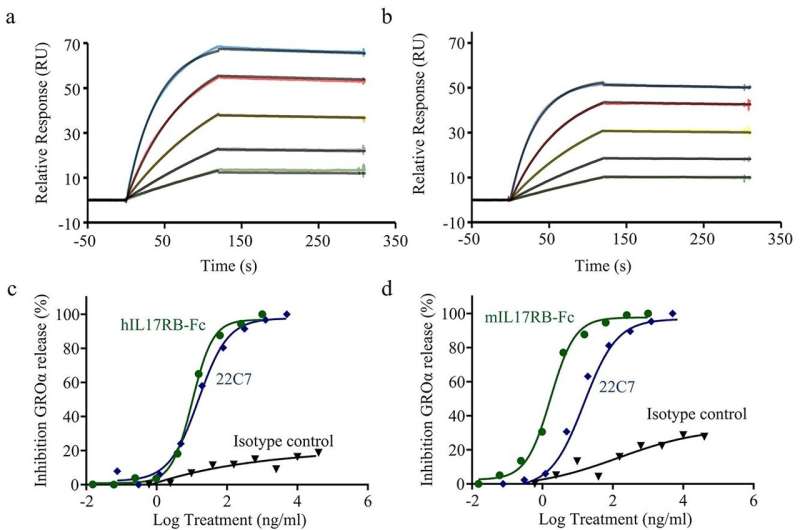
A new study, published recently in the journal Antibody Therapeutics, describes the discovery of a novel antibody which may have therapeutic potential by blocking the progression of inflammation caused by the cytokine interleukin-25 (IL-25).
IL-25 is a cytokine released by cells when activated or damaged, which contributes to the process of inflammation. It has been implicated in the development of inflammation in different organs, including the skin (psoriasis), lung (asthma) and intestines (inflammatory bowel diseases), as well as cancer.
This anti-IL-25 antibody effectively suppressed inflammation in an in vivo model of the inflammatory skin disease psoriasis. The study shows that creating antibodies to target IL-25 could represent a new therapeutic approach for these conditions.
The research partnership was supported by Science Foundation (SFI) and Pfizer as part of the SFI-Pfizer Biotherapeutics Innovation Award Program (SFI-BIAP). The SFI-BIAP benefitted from the combined expertise of scientists in Trinity College’s School of Medicine and Pfizer as they worked closely together to discover this novel antibody targeting IL-25.
Professor Padraic Fallon, Professor of Translational Immunology and Trinity College lead said, “This SFI-funded collaboration was unique in capitalizing on the team’s excellence in immunology and inflammatory diseases with the world-leading discovery platforms of Pfizer in creating innovative therapeutic molecules for human diseases. The SFI-BIAP provided an opportunity for academic scientists to experience the environment of the pharmaceutical industry working with Pfizer scientists based in Grange Castle, Ireland and Cambridge, Massachusetts, U.S.”
Brian Fennell, associate research fellow, Pfizer said, “At Pfizer, collaboration is incredibly important to us and to our collective ability to move science forward. This partnership allowed us to combine our complementary capabilities, and we are very pleased to have worked alongside Science Foundation Ireland and Trinity College Dublin in doing so. As researchers, we strive every day toward a common goal to help identify and advance promising science for patients in need.”
Professor Philip Nolan, director general, Science Foundation Ireland, said, “I’d like to congratulate Professor Padraic Fallon and his group at TCD on their success. It is a testimony to the excellence of their research and demonstrates the importance of connecting academia and industry, leading in this case to a new therapeutic approach with the potential to significantly improve patient outcomes. SFI were pleased to partner with Pfizer to support this innovative scientific research.”
Source: Read Full Article
